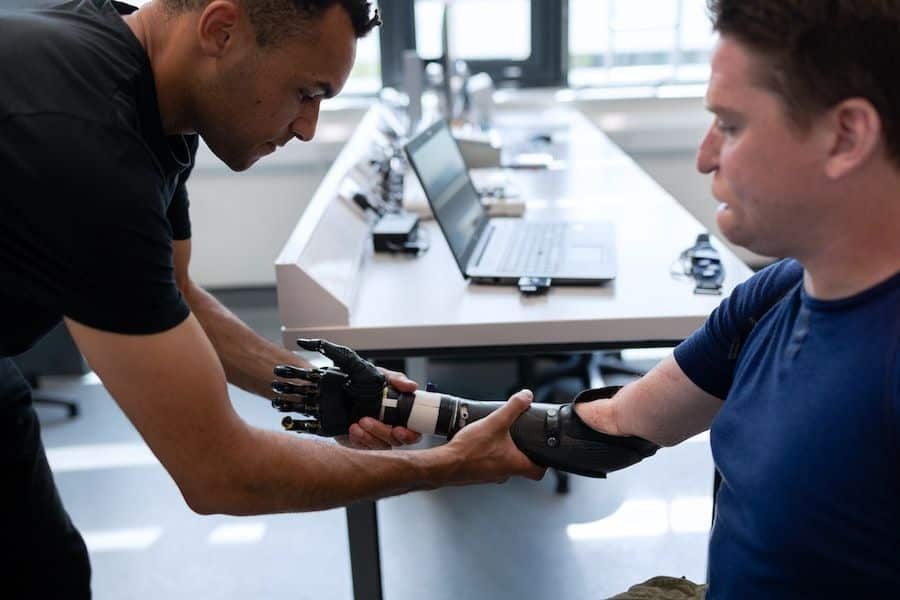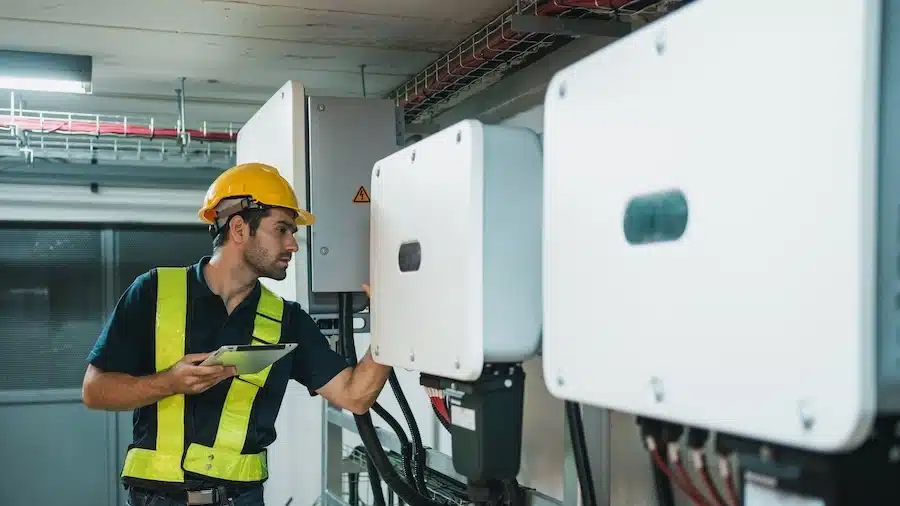Applying for an Innovate UK grant with a project partner is a great way to share the costs and complexities of cutting-edge development work. But there are a number of ways in which partnerships also complicate your application for an Innovate UK grant.
When performing cutting-edge R&D, many innovators choose to cooperate with other organisations, rather than go it alone.
These cross-sector and sometimes cross-industry collaborations add additional expertise to a project while reducing the expense and resources committed by either party.
To support R&D collaborations, Innovate UK allows companies to apply for many of its competitions alongside a partner, meaning they too would be eligible for grant funding.
However, applying for an Innovate UK grant with a project partner can complicate things a little. There are some important things you need to know about which organisations are eligible for funding, and how partnerships will impact your submission if you’re looking to file in tandem.
Let’s take a closer look.
Checking your partners' eligibility
Before partnering with an organisation, you as the lead applicant must check whether your partner is eligible for the Innovate UK competition you plan on applying to.
To collaborate with you on a project, your partner must:
- Be a UK registered business, academic organisation, charity, public sector body or research and technology organisation (RTO)
- Be carrying out work in the UK
- Intend to commercially exploit the results of the project in the UK
- Be invited to take part by the lead applicant (you)
Finding a Project Partner
If you need help identifying an eligible partner with appropriate expertise, there are numerous platforms where you find the right business or organisation to collaborate with. Here are a few:
Inviting your partner
Once you’ve confirmed your partner is eligible for an Innovate UK grant, you will need to invite them to the application via the application team section in the Innovate Funding Service (IFS) portal.
Partner organisations must then enter their own project costs into the portal. That is unless they are a Higher Education Institution (HEI). More on them below.
Here are a few things to note:
- If you are a lead RTO or large business leading the project, then you must collaborate with a micro, small or medium-sized organisation and other UK registered business, research organisation, academic organisation, or charity
- Partners can collaborate on more than one project
- If collaborating with an academic organisation, the organisation can claim up to 30% of the total eligible project costs
- If you are applying to the higher stream competition (£25,000 – £2 million) you must be working with a partner
Je-S forms
HEIs and other research organisations must submit their project costs through a Je-S form, found on the Je-S Website. Note, after the form is complete project costs will also need to be inputted on the Innovative Funding Service portal.
Your partner must be registered on the Je-S system before submitting their costs. If they aren’t, they should register as soon as possible, as it may take some time to process.
To complete the Je-S form, the organisation will need the project’s Innovate UK application number. This is used to link the project’s Innovate UK application and the J-es finance forms together. Once submitted, approved costs will be added to your project’s application.
Bear in mind that it takes time to complete and submit the Je-S form. University partners will need to liaise with their research officers who are often very busy, so we advise you to allow at least three weeks for completion.
Letters of intent and support
Letters of intent are letters from a third party – either a potential customer or client – that express their intention to enter a contract with your organisation in the future.
Meanwhile, letters of support are non-binding letters from a company or customer that corroborate your claim of success. The support can take various forms, for example, “in-kind support” that is either technical or strategic in nature. These letters are very common in grant proposals.
You can include letters of intent or support in Appendix Q3. They should be on headed paper and signed by the sending organisation.
Contributions-in-kind
Within your project, you may have contributions that are ‘in-kind’.
These are non-monetary contributions such as voluntary labour, equipment, facilities, etc. You can describe another organisation that provides in-kind contributions as a ‘project supporter’.
When applying for an Innovate UK grant, it is best to have a letter of support from the project supporter that details the contribution-in-kind, along with a brief description in the main narrative of question 10 (costs).
Letters of support are not mandatory, but they can strengthen your application.
Non-formal partnerships
Aside from project partners, your proposal can show non-formal partnerships with potential clients or customers in the form of a letter of support or intent, or as an in-kind contribution.
Re-cap
As you can see, seeking to acquire an Innovate UK grant with a project partner has important implications for your application.
Here are the key things you need to bear in mind before you apply:
- You need to ensure that your project partner is eligible
- Make sure you allow additional time – Je-S forms should be given at least 3 weeks
- Check how costs are split – academic organisations can only claim a maximum of 30% of total eligible project costs
Questions?
Hopefully, this blog gives you a much clearer picture of what it takes to apply for an Innovate UK grant with a project partner, and what kind of partner you need to be working with to apply.
If you have any questions about working with a partner on an Innovate UK grant, just get in touch. Our grants team will be happy to help.




